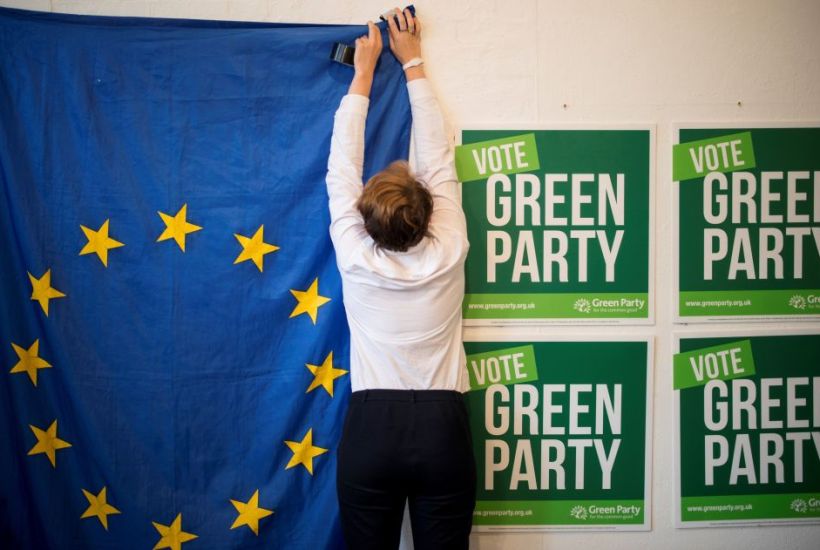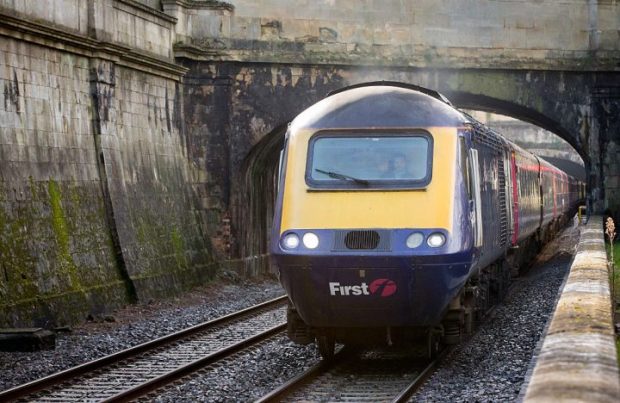Should the Labour party be worried about the Greens? Some Labour activists think so. The Greens have just become the third most popular in British politics, if the latest IpsosMORI poll is anything to go on. The party won eight per cent support in the survey, putting them ahead of the Lib Dems. It’s enough to give even the staunchest Starmerite cause for concern. But the reality is that Labour needn’t sound the alarm.
In fact, the very last thing Labour should be worried about at the moment is losing potential voters to the Greens. Why? Because we’ve been here before.
In early 2015, support for the Greens went as high as 11 per cent in some polls. It led to grave worries among denizens of the Labour left that Miliband’s bland ‘centrism’ had led young urban voters to abandon the party for the more solidly leftist Green party.
This was the factor that was going to stop Labour winning the upcoming general election, they said – except that analysis turned out to be remarkably incorrect. It was almost the inverse of what actually took place. While the Greens won its highest-ever share of the vote with 3.8 per cent, the party made no gains in terms of seats. Their relatively good showing made little difference to the outcome of the election.
In the end, it was clear that Labour lost the 2015 general election because of a combination of three factors: losing 40 seats to the SNP in Scotland, having most of the Lib Dem losses go to the Tories instead of them, and most significantly, not being able to win back almost any of the seats that they had lost to the Conservatives in 2010.
In other words, the reason Labour didn’t win in 2015 wasn’t because they had leaked votes to the Greens by being too right-wing. The real reason was that they couldn’t win back those who had voted for New Labour in three successive elections but had switched to the Tories. Ever since Blair said goodbye, this has been Labour’s chief electoral problem. But it is one many within the Labour movement simply do not want to face; instead they choose to indulge in fantasies that the Greens are coming to get them.
In 2017 and 2019, the Green party did even worse than 2015, winning 1.6 per cent and 2.7 per cent of the vote respectively. That marginal level of support in the most recent election shows that even a left-wing environmentalist like Jeremy Corbyn only managed to take a single percentage point off the Green figure compared to Miliband in 2015. In other words, it looks like the Greens have a core vote that Labour can only squeeze so much, regardless of how far to the left they travel. Yet, once again, Labour activists are piling pressure on Starmer to try and win Green voters who are unlikely to ever come on board. How Keir Starmer responds will decide his ultimate electoral fate.
Starmer can indulge the whims of the left of his party and chase Green voters by making policy announcements designed solely for them. He can make Labour into even more of a vehicle strictly for the young, urban leftist than it is already. In doing so, he would be further alienating voters in every other direction, most notably those who have left them for the Conservatives over the last four elections.
Or Starmer can do what he seems to be doing, albeit far too tamely at present, which is to try and drag Labour towards becoming a party that those real target voters – in the red wall seats, and in southern seats won by New Labour – would consider voting for again. The problem the current Labour leader has got is how much of his party he can convince to go in the same direction. At present, the jury is out on that one.
If I were in the Labour leader’s office right now, I would actually take the Greens’ high polling numbers as a positive sign. Most of that number will inevitably turn to Labour in a general election, just as the Greens and Lib Dems relatively large polling numbers melted into Labour once the general election campaign was underway in 2019.
In a choice between a Labour-led government and giving the Tories another victory, handing the Conservatives power for what would be 19 years at the time of the 2029 election, will young people really refuse to turn out to vote for Labour simply because Starmer stood in front of the Union flag without wincing? I suppose time will tell. One thing is certain, however – Labour chasing the Green vote is a road to nowhere.
Got something to add? Join the discussion and comment below.
Get 10 issues for just $10
Subscribe to The Spectator Australia today for the next 10 magazine issues, plus full online access, for just $10.




















Comments
Don't miss out
Join the conversation with other Spectator Australia readers. Subscribe to leave a comment.
SUBSCRIBEAlready a subscriber? Log in